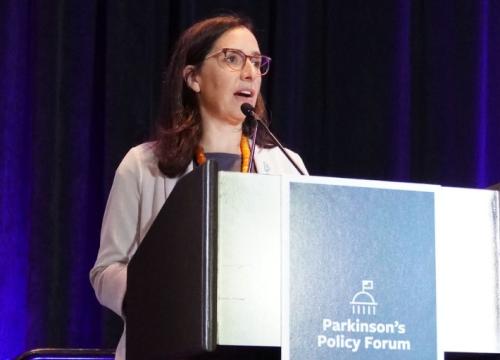Episode 88: The Skinny on Clinical Trials in PD
When people take a prescribed drug, they rarely if ever consider how it came to be. They assume it is the right drug and will work safely as it is supposed to. But leading up to that drug being available is a long process of discovery or invention of the molecule based on knowledge of the biology it is supposed to affect, then testing in the laboratory and in animals, and several phases of testing in people to make sure that it is safe and effective. Each of these steps takes time and lots of financial investment. Even after a drug is approved by the U.S. Food and Drug Administration for sale and then put on the market, further study of the drug in a larger population than in the testing phases may be carried out. In this episode, Dr. Hubert Fernandez, Director of the Center for Neurological Restoration at the Cleveland Clinic in Ohio, a Parkinson’s Foundation Center of Excellence, describes the process of bringing a drug to market, including how many of them never make it. And he explains why people need to participate in the clinical trials and what they can expect when they do.
Released: August 25, 2020
Want more?
Don't forget to subscribe! There are many ways to listen: Apple Podcasts, TuneIn (Amazon Echo), Spotify or RSS Feed. (Need help subscribing? See our quick guide.)
For all of our Substantial Matters podcast episodes, visit Parkinson.org/Podcast.
Related Materials
Related Blog Posts

Shaping the Future of Parkinson’s Policy: Meet Our Chief Strategy and Policy Officer

Mapping the Brain in High Resolution: How the University of Michigan is Advancing Parkinson’s Neuroscience

